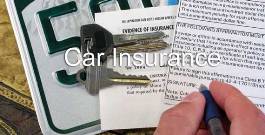 Almost daily people tell us that they or the at-fault driver in an accident have “Full Coverage” vehicle insurance. The subject comes up while trying to determine if insurance is available to provide compensation for non-economic damages such as pain & suffering arising from personal injuries sustained in a motor vehicle crash. Most people believe that such coverage is available as part of the basic insurance coverage required by the state of florida to lawfully operate a vehicle in Florida. It isn’t.
Almost daily people tell us that they or the at-fault driver in an accident have “Full Coverage” vehicle insurance. The subject comes up while trying to determine if insurance is available to provide compensation for non-economic damages such as pain & suffering arising from personal injuries sustained in a motor vehicle crash. Most people believe that such coverage is available as part of the basic insurance coverage required by the state of florida to lawfully operate a vehicle in Florida. It isn’t.
Florida law requires every owner of a vehicle registered in Florida to maintain nothing more than Personal Injury Protection (“PIP”) and Property Damage Liability insurance. Many people are suprised to learn that neither of these coverages compensates anyone for pain & suffering damages. PIP covers 80% of medical expenses and/or 60% of wage losses up to a total of $10,000 subject to deductibles, while Property Damage Liability pays for damage to other vehicle caused by the at-fault pary. (The minimum level for this type of coverage is $10,000.)
When someone is injured in a Florida motor vehicle accident, only Bodily Injury Liability (“BI”) and Uninsured/Underinsured Motorist (“UM/UIM”) insurance will compensate the victim for his non-economic (pain & suffering) damages. Neither of these coverages is mandatory and to have either requires a premium payment over that required for the minimum mandatory PIP and PD Liability insurance.
Continue reading
 Florida Injury Attorney Blawg
Florida Injury Attorney Blawg


